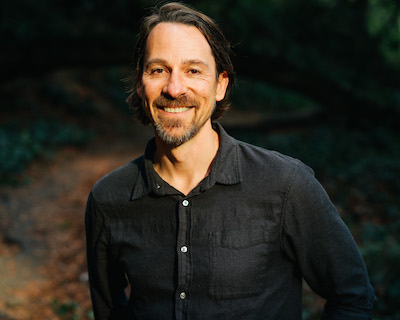Meeting our true selves amidst the quiet
When we remember to sit quietly we can hear the loving whisper of intuition that tells us when we’re on the right path and when important things are lacking. Read More

Shutterstock
In late July, I broke five months of sheltering-in-place sameness and headed for the wilderness.
My girlfriend and I spent six days backpacking in Northern California’s national parks. We could hardly stop chattering about our relationship, our careers, our dreams. We greeted each hiker we passed on the trail. When we jumped into cold mountain lakes, we yelped like kids and compared our swimming strokes.
And yet, I’m most grateful not for the trip’s conversations, but for its silences.
I connect most deeply with myself, and the world around me, when I shut up and invite in the quiet.
An inner stillness emerged as I listened to the rustle of wind in the fir groves and the muted majesty of the ancient redwoods. My thoughts slowed as I looked across the granite crags of the Trinity Alps. My spirit swelled as I watched hundreds of pinwheeling bats feed on insects above Deer Lake.
When I left for vacation, I’d felt worn down and uninspired. When I returned, I was filled with inspiration, energy and ideas. I felt engaged with my purpose and far more capable of serving others. A team leader I coach said she could instantly see the difference: “You’re sparkling.”
I’d rediscovered my sparkle in quiet.
Inside-out
As an executive coach, I subscribe to the inside-out model of leadership: The more self-aware, self-compassionate and self-calming you are, the more you can be those things with others.
The best leaders I know have a deep understanding of what they value, what emotions and physical sensations are flowing through them in each moment and how others are experiencing them. They are rooted not just in what they are doing, but in how they are being.
The willingness to sit quietly helps us develop this kind of leadership mastery.
The poet Rumi once said, “The quieter you become, the more you can hear.” That includes hearing ourselves. When we shut off the outside noise, our inner voice comes through much more clearly.
I don’t mean the constant prattling of our thoughts: the to-do lists, the self-criticisms and the shoulda-coulda-wouldas that fill our heads through the day. The droning monologue that takes over our minds when we’re so busy striving, so busy doing.
No, I mean the parts that long for us to keep growing. The wise voice that knows what our bodies and spirits really need in order to be healthy and fulfilled.
When we remember to sit quietly — to just be — we can hear it: that loving whisper of intuition. It tells us when we’re on the right path and when important things are lacking.
We come most alive when we listen to this inner voice. It helps us focus on what matters, and it attunes us to the impact we’re having on ourselves, our families and friends, our work teams, our communities and the planet.
Sometimes the changes it’s demanding of us are frightening. The voice might remind us that we’re lacking a sense of purpose at work or that we haven’t spent an undistracted day with our children since the pandemic struck or that we’re barreling toward burnout and desperately need a vacation. It’s easier, at least for a while, to ignore it than take action.
But when we disregard our wisest selves, we miss important chances to create, learn and thrive.
Where do you find quiet to listen to your inner voice? What additional stillness, even just a few minutes at a time, could you cultivate in your life?
You could rise before the rest of your household and, while you quietly sip your morning beverage, set an intention for the day.
Leave your phone at home when you go for a walk or run.
Turn off the radio while you’re driving.
Commit to a daily meditation practice.
Spend a few minutes each night reflecting on what made that day great and what you could do to make the following day even better.
What important things might you learn, or rediscover, about yourself in silence that you’ve been too busy to hear?
Mindful breaths
Since returning from my backpacking trip, I’ve doubled the length of my morning meditation practice and recommitted to three pages of quiet journaling. My aim is to hear my own voice clearly before I open up my mind to the day’s steady stream of outside influences such as email, social media and news stories.
I also use an app called MindJogger to prompt me at random, a half-dozen times a day, to stop whatever I’m doing and take a few mindful breaths. The stillness helps me hear the wisdom of my body.
And when COVID conditions allow, I’ll do something I once considered far too frightening: sign up for a 10-day silent Vipassana retreat. I have no idea what I’ll learn about myself in that much quiet, and it’s just the challenge I’m seeking.
In the meantime, I’m going to keep heading into nature — with deep gratitude for the work that you, as sustainability professionals, are doing to protect the environments that offer us refuge in this noisy, noisy world.
“The think tank of the soul.” That’s what Gordon Hempton calls quiet. He is an acoustic ecologist who records the sounds of natural habitats, which you can listen to in this delightful interview. For decades, Hempton has campaigned to preserve the few remaining spaces, such as the Hoh Rainforest in Washington’s Olympic National Park, that are unsullied by the noise of modern society.
Silence is worth fighting for, he says, because when we step into quiet, we meet our true selves.













